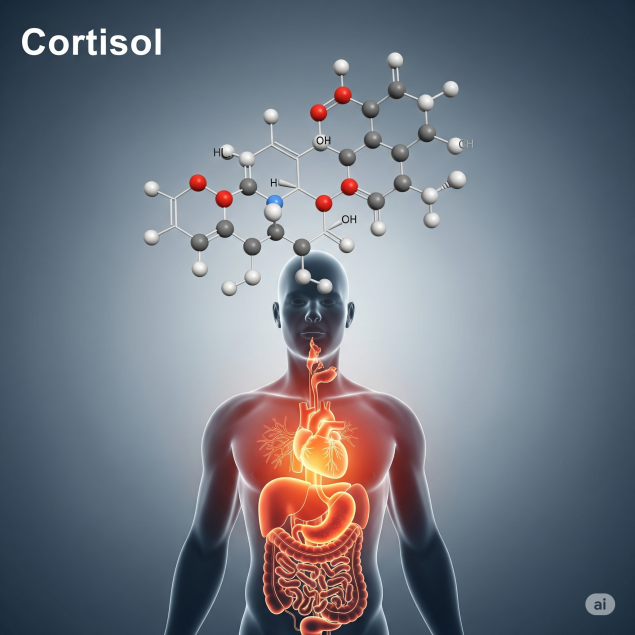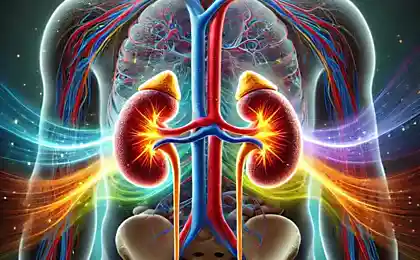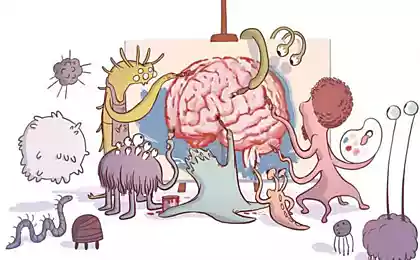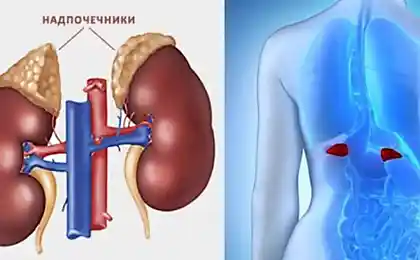177
Rumination: How to Stop a Destructive Thought Carousel
When the brain becomes its own enemy

Imagine an old record stuck in one place and repeating the same tune endlessly. This is how our brains work when they fall into the trap of rumination. Only instead of music, he replays disturbing thoughts, each time releasing stress hormones that slowly but surely destroy our body and psyche.
Studies show that the average person spends up to 47% of their waking time in rumination.
What is rumination and why is it so dangerous
Rumination gets its name from the Latin word ruminare, which means chewing gum. Just as a cow chews grass endlessly, our brains can get stuck on the same thoughts, replaying them over and over again. But unlike the cow, which benefits from this process, human rumination is only harmful.
It's important to understand: Every disturbing thought triggers a real physiological response in the body. The brain can’t tell whether the threat is real or whether we’re just thinking about it.
When we mentally play out unpleasant scenarios, our bodies react as if these events are happening right now. The adrenal glands begin to produce cortisol - a stress hormone that in the short term helps us cope with danger, but with prolonged exposure becomes a real poison for the body.
Cortisol: The Invisible Destroyer

Cortisol is often called the “hormone of death,” and for good reason. With a constant elevated level of this hormone in the body, catastrophic changes occur. It suppresses the immune system, disrupts the cardiovascular system, destroys muscle tissue and contributes to the accumulation of fat in the abdomen.
Physical consequences of chronic rumination:
• High blood pressure
• Sleep disorders and insomnia
• Digestive problems
• Decreased immunity
• Premature aging
• Increased risk of heart disease
Dr. Susan Nolen-Höxem, who has devoted her career to the study of rumination, found that people prone to obsessive thinking are 70% more likely to develop depression and 40% more likely to abuse alcohol.
The vicious cycle of negative thoughts
Rumination creates a vicious cycle: the more we think about problems, the worse we feel, and the worse we feel, the more we think about problems. This process can last for hours, days, and sometimes years.
Maria, 34, a sales manager: "I could spend whole nights scrolling through a conversation in my head with my boss." Every time I thought about what I could say differently, how he might react. By morning, I was exhausted, like running a marathon all night.
Studies by neuroscientists show that rumination activates the same areas of the brain as when experiencing stressful events. The prefrontal cortex, which is responsible for decision-making, is overloaded, and the limbic system, which is responsible for emotions, operates in a constant alarm mode.
Effective strategies to combat rumination

The good news is that rumination can be stopped. There are many science-based techniques that help break the cycle of obsessive thoughts.
STOP technique
S Say “Stop!” when you notice the beginning of rumination.
T Take three deep breaths.
Oh. Evaluate the situation objectively
PP Switch to a specific action
1. Set aside 15-20 minutes a day to think about problems. When disturbing thoughts appear at other times, gently remind yourself, “I’ll think about it at the appointed time.” It helps to take control of the thinking process.
2. Studies show that regular practice of mindfulness reduces activity in the passive mode network of the brain responsible for rumination. Start with 5-10 minutes of meditation per day, focusing on breathing.
3. When you are overwhelmed by disturbing thoughts, ask yourself the question: “Will it matter in 5 years?” In a year? In a month? This helps put problems in the right perspective.
4. Movement is one of the most effective ways to interrupt rumination. Even a 10-minute walk can significantly lower cortisol levels and shift attention.
5. Imagine watching your thoughts from the outside like a movie. This creates psychological distance and helps to assess the situation objectively.
When you need professional help
Sometimes rumination becomes so strong that it is extremely difficult to cope with it on your own. If obsessive thoughts are seriously affecting your life, work, or relationships, you should consult a specialist.
Contact a psychologist if:
• Rumination lasts more than 2-3 weeks
• Disturbed sleep or appetite
• There are thoughts of self-harm
• Working capacity decreases
• There are panic attacks.
Cognitive behavioral therapy shows excellent results in the treatment of rumination. The therapist will help identify triggers, teach effective techniques and develop an individual plan for dealing with obsessive thoughts.
Prevention: How to protect yourself from rumination
The best way to combat rumination is prevention. Building healthy mental habits will help prevent getting stuck in negative thoughts.
Daily habits for mental health:
• Keep a Gratitude Diary – Write down 3 good things that happened in the day
• Practice deep breathing before bedtime
• Limit the consumption of negative information
• Maintain social ties
• Engage in creativity or hobby
Remember, you are not your thoughts.
Rumination is not a sign of weakness, but a feature of the brain that can and should be worked with. Every step toward mindfulness and control of your thoughts is an investment in your physical and mental health. Be patient with yourself and remember that change takes time, but it will happen.
Glossary
Rumination
Obsessive, repetitive thinking about negative events, problems, or emotions without finding a solution.
cortisol
Stress hormone produced by the adrenal glands in response to stressful situations. With chronic increase, it harms the body.
Mindfulness
Practice conscious attention to the present moment without judgment, helping to reduce anxiety and depression.
Prefrontal cortex
The area of the brain responsible for decision-making, planning, and impulse control.
limbic system
The group of brain structures responsible for emotions, memory and motivation.
Cognitive behavioral therapy
A method of psychotherapy aimed at changing destructive thoughts and behavioral patterns.
15 Mistakes A Smart Man Will Not Make Twice
Dear daughter, if you come to a young man's house and he doesn't have bookshelves full of books.























